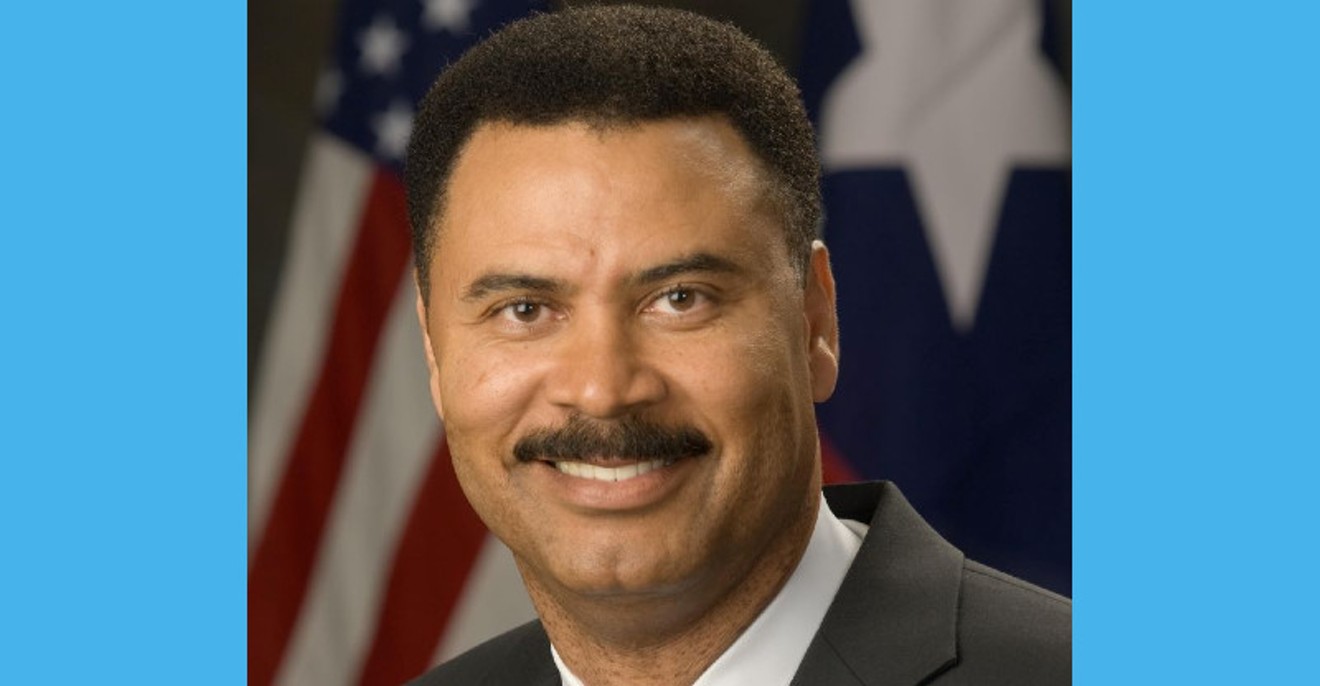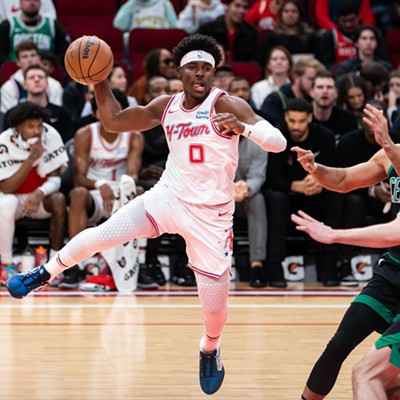Following the terrorist attacks of 9/11, the Houston Police Department like many around the country, took several steps away from community education and awareness and toward a much more aggressive policing that placed a premium on enforcement and tactical operations, according to former Houston Police Chief C. S. "Brad" Bradford.
Influenced by Patriot Act legislation, residents went along with this, according to Bradford who has written a memo to Mayor Sylvester Turner's Task Force on Policing Reform, charged with reviewing and offering suggestions for change following the death of George Floyd and the resulting protest marches here and across the country.
"Over the last few years, police agencies have implemented hundreds of millions of dollars in technology, while the much needed face-to-face time between citizens and police has dwindled," Bradford writes.
The community has complained for the last ten to 15 years about how police misconduct complaints are handled, Bradford notes. The change needed goes beyond the technology of body cameras, he says, to a real need for a shift in police culture.
"The realization, and to my disappointment, of clear evidence of systemic, use of force problems even within the Houston Police Department revealed itself via the Chad Holley video March 24, 2010. In the video about a half dozen Houston police officers are seen beating 15-year old Chad Holley, a burglary suspect," Bradford says.
Three aspects of this bothered him the most: the number of officers involved in the beating, that none of the officers tried to stop i, and that none of the officers reported the incident — instead the police actions were revealed in a video about a month later by a worker at the facility where it happened.
Bradford goes on to say that any attempt at change should include a close look at police staffing levels especially given the "force multiplier" effects of technology.
Also, he says, HPD records show that more than 85 percent of its officers do not live within the city of Houston. While Bradford agrees with current law that prohibits residency requirements for its officers, he suggests that the city provide incentive pay for those that do — perhaps in the form of $10,000 a year more in pay.
He also suggests that instead of just across the board pay increases, that a certain amount be reserved for incentive pay "whether to live within the city, pay more for bilingual skills, credits toward promotion, educational enhancements, or other personal physical and psychological development and maintenance."
He'd like to see more foot and bike patrols. "This would create real contact, leading to communication, thus building trust, and information exchange. After all, it is information that police officers need to solve crimes. And, you don’t get it by zooming by in patrol cars with the windows up."
He suggests there should be a community input component in every officer's annual review. Members of any review board should be appointed or replaced only by members of that group. And the board should have access to all documents and be able "to initiate action and investigations on its own authority."
Here's his full letter:
Support Us
Houston's independent source of
local news and culture
account
- Welcome,
Insider - Login
- My Account
- My Newsletters
- Contribute
- Contact Us
- Sign out
Former Houston Police Chief C. O. "Brad" Bradford Has a Few Things to Say About Policing Reform
Margaret Downing July 10, 2020 8:03AM

The former police chief and council member has a few things to say.
Photo by C. O. "Brad" Bradford office.
[
{
"name": "Related Stories / Support Us Combo",
"component": "11591218",
"insertPoint": "4",
"requiredCountToDisplay": "4"
},{
"name": "Air - Billboard - Inline Content",
"component": "11591214",
"insertPoint": "2/3",
"requiredCountToDisplay": "7"
},{
"name": "R1 - Beta - Mobile Only",
"component": "12287027",
"insertPoint": "8",
"requiredCountToDisplay": "8"
},{
"name": "Air - MediumRectangle - Inline Content - Mobile Display Size 2",
"component": "11591215",
"insertPoint": "12",
"requiredCountToDisplay": "12"
},{
"name": "Air - MediumRectangle - Inline Content - Mobile Display Size 2",
"component": "11591215",
"insertPoint": "4th",
"startingPoint": "16",
"requiredCountToDisplay": "12"
}
,{
"name": "RevContent - In Article",
"component": "12527128",
"insertPoint": "3/5",
"requiredCountToDisplay": "5"
}
]
KEEP THE HOUSTON PRESS FREE...
Since we started the Houston Press, it has been defined as the free, independent voice of Houston, and we'd like to keep it that way. With local media under siege, it's more important than ever for us to rally support behind funding our local journalism. You can help by participating in our "I Support" program, allowing us to keep offering readers access to our incisive coverage of local news, food and culture with no paywalls.
Margaret Downing is the editor-in-chief who oversees the Houston Press newsroom and its online publication. She frequently writes on a wide range of subjects.
Contact:
Margaret Downing
Follow:
Facebook:
HoustonPress
Twitter:
@HoustonPress
Trending News
- Column: Opting Out of the STAAR Test Requires a Law Degree Or Iron Will
- Former Katy ISD Trustees Band Together To Support Two Trustees Running For Re-Election
- Four Reasons the Astros Are Bad at Baseball Right Now
-
Sponsored Content From: [%sponsoredBy%]
[%title%]

Don't Miss Out
SIGN UP for the latest
news, free stuff and more!
Become a member to support the independent voice of Houston
and help keep the future of the Houston Press FREE
Use of this website constitutes acceptance of our
terms of use,
our cookies policy, and our
privacy policy
The Houston Press may earn a portion of sales from products & services purchased through links on our site from our
affiliate partners.
©2024
Houston Press, LP. All rights reserved.





